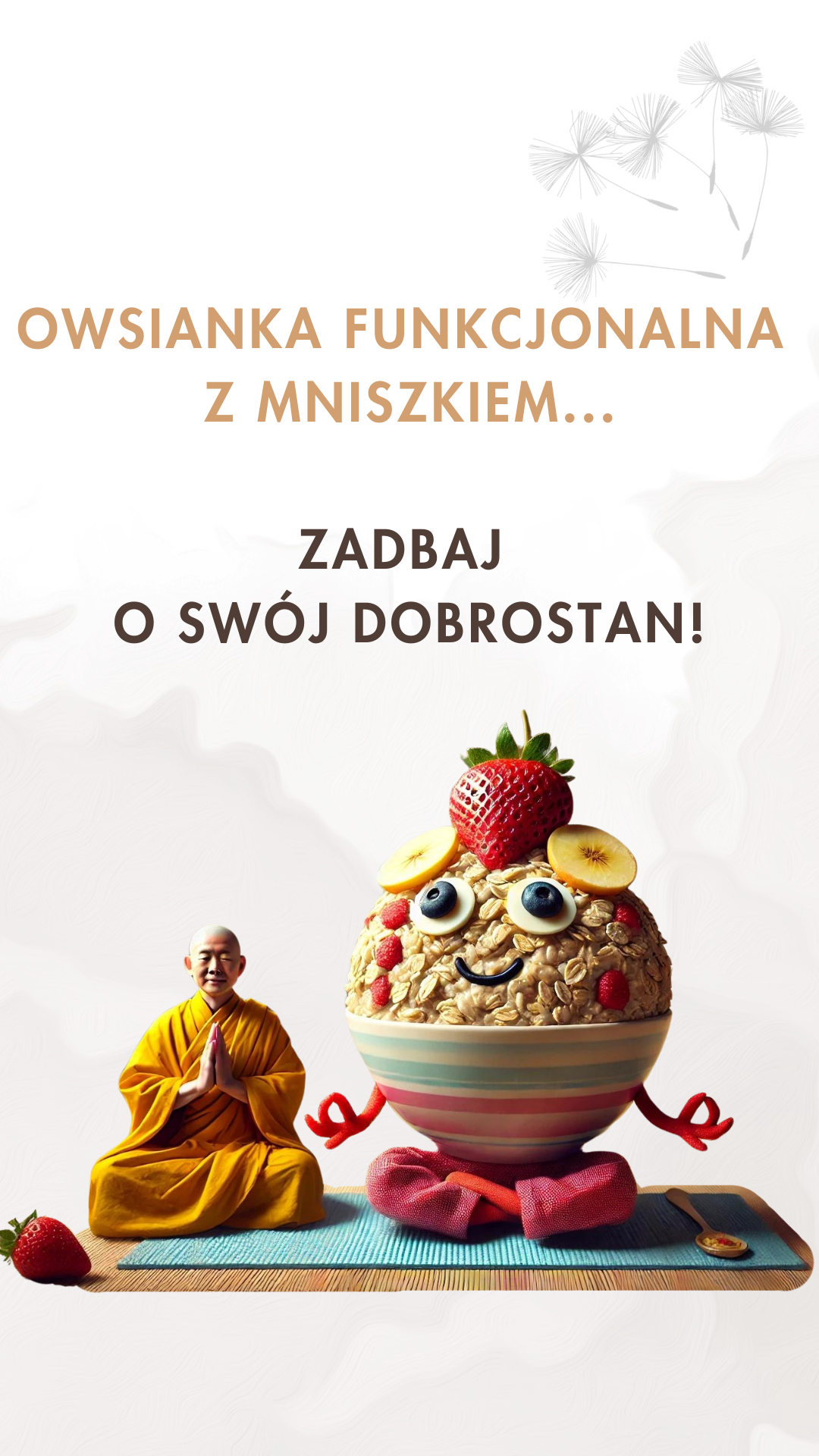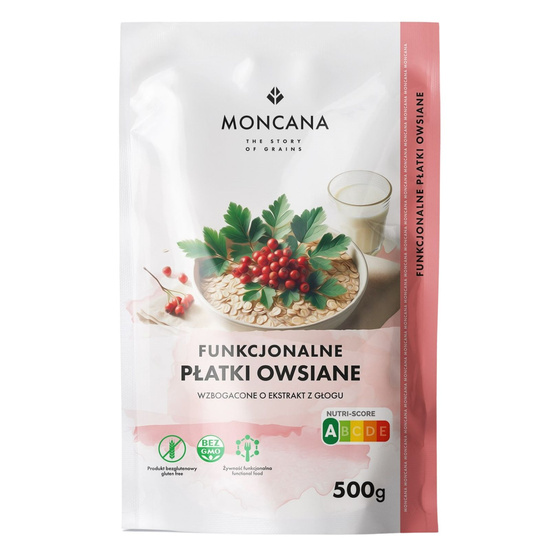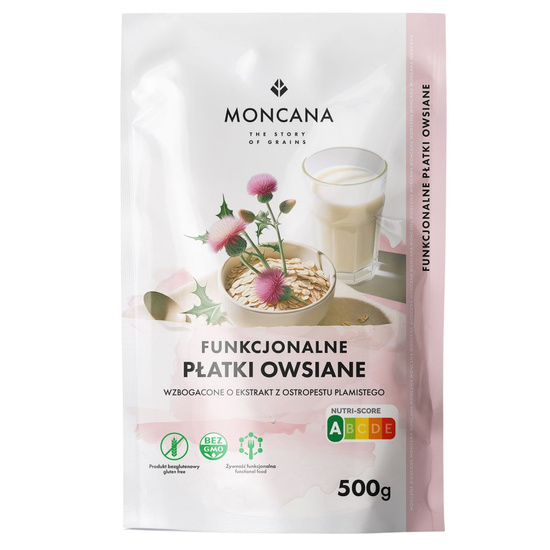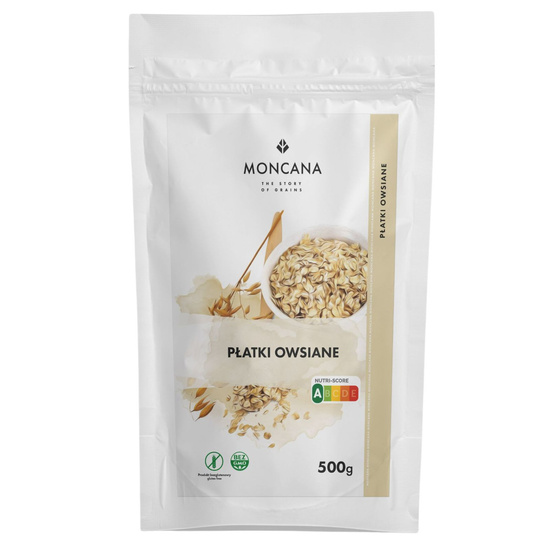Breakfast cereals - which are healthy, how to choose and what to avoid?

Are breakfast cereals healthy? Watch out for marketing traps!
Oatmeal has long had a reputation as the foundation of a healthy breakfast. Their richness in fiber, vitamins and minerals makes them an indispensable part of a balanced diet. You'll find plenty of types of breakfast cereals in stores, from muesli to crunchy mixes with additives. Colorful packaging attracts attention, but is it really worth reaching for every product?
Biggest mistake? We do not read the composition!
Tired after work or study, we often buy with our eyes - we choose a product that is well-known, advertised or just nicely packaged. Unfortunately, manufacturers like to add sugars, preservatives and other unnecessary ingredients that can harm your health.
Thus which breakfast cereals are healthy and which are better to avoid?
The healthiest breakfast cereals - which to choose?
1. Oatmeal - the king of a healthy breakfast
Oatmeal is one of the best choices for breakfast. Why?
- Source of dietary fiber, which supports digestion and takes care of the intestines
- Beta-glucans lowering cholesterol and blood sugar levels
- Aventramids - Powerful antioxidants to protect the heart and skin
Which oatmeal is best?
- Oatmeal ordinary - Least processed, most fiber
- Mountain oat flakes - slightly shredded, still healthy
- Instant oatmeal - most processed, worth eating less often
Modern nutritional research and innovation has created products that not only provide essential nutrients, but also offer additional health benefits. Such are functional oatmeal enriched with plant extracts, which are gaining popularity among conscious consumers.
Eating oatmeal daily may reduce risk of type 2 diabetes by 14%!
2. Buckwheat flakes - ideal for diabetics
Buckwheat flakes are a great option for those concerned about a low glycemic index.
- Lower blood sugar levels
- Support heart function and lower cholesterol
- They are rich in antioxidants that slow down aging
Studies show that eating buckwheat flakes can lower blood sugar levels by up to 16 mg/dl!
3. Barley flakes - an alternative to oatmeal
Barley flakes, like oat flakes, contain high amounts of fiber and beta-glucans.
- Support intestinal function
- Regulate sugar levels and appetite
- May help fight insulin resistance
Is barley flakes better than oatmeal?
Although not as popular, their health properties are almost identical. It is worth including them in the diet!
What breakfast cereals are worth eating from time to time?
Corn flakes - quick energy, but for a short time
Rich in carbohydrates, but..
- They have a high glycemic index - they raise blood sugar quickly
- They contain little fiber, making us feel hungry again quickly
- Do not provide beta-glucans
For whom they may be good?
Corn flakes will work well for people who need to follow an easy-to-digest diet (for example, with intestinal problems). However, for most people they are not the best choice for everyday use.
Which breakfast cereals are unhealthy? What to avoid?
Not all cereals are good for your health. Avoid those that contain:
- Sugar added (e.g., glucose-fructose syrup, molasses)
- Cornstarch and wheat flour - increase the glycemic index
- Candied fruit - Choose dried prunes, apricots, dates instead
What about flakes with honey?
Although honey itself is healthy, flakes coated with it lose its nutritional value. Better to add honey on its own to the finished oatmeal!
Functional oatmeal - a step further in healthy eating
In response to the growing needs of consumers, functional oatmeal enriched with plant extracts has been developed. These products combine the traditional benefits of oats with additional health-promoting properties from plants. Importantly, these additives do not affect the taste of the cereal, so it retains its deliciousness and is ideal for starting the day.
Benefits of eating functional oatmeal
- Supporting cardiovascular health: Hawthorn extract helps regulate blood pressure and lower cholesterol, which contributes to heart health.
- Gluten-free: Ideal for those with celiac disease or gluten intolerance, products are made in facilities free of other gluten grains.
- Supporting intestinal health: the combination of oats with plant extracts, such as dandelion, supports intestinal health and benefits the liver and bile ducts.
- Improve kidney and urinary tract health: Nettle extract supports kidney, urinary tract and prostate health, as well as benefits skin, hair and nail health.
- Immune support: Beta-glucans in oatmeal activate macrophages, which helps strengthen the immune system.
- Skin health: plant extracts, such as nettle, can improve the condition of skin, hair and nails.
- Improve mood: Magnesium and other nutrients in oatmeal can help improve mood and concentration.
- Reducing disease risk: Regular consumption of oatmeal may reduce the risk of colon cancer and help stabilize blood sugar levels.
How to make healthy cereal for breakfast?
Instead of ready mixes full of sugar, create your own breakfast!
Base: oat, buckwheat or barley flakes
Fats and protein: nuts, flaxseed, chia seeds
Fruits: fresh berries, raspberries, strawberries
Liquid: natural yogurt, kefir, plant milk
Tip: instead of milk, try oatmeal on green tea or coconut water!
Summary - which breakfast cereals to choose?
Best options:
- Oatmeal (regular or functional)
- Buckwheat flakes
- Barley flakes
To eat occasionally:
Corn flakes
Avoid cereals with added sugar, cornstarch, wheat flour and candied fruit!
Your choice matters!
Read labels and choose products that support your and your family's health.
By choosing functional oatmeal, you are investing in your health, providing your body not only with essential nutrients, but also with valuable bioactive compounds derived from plants. It's a simple step toward better well-being and support for the whole body.





